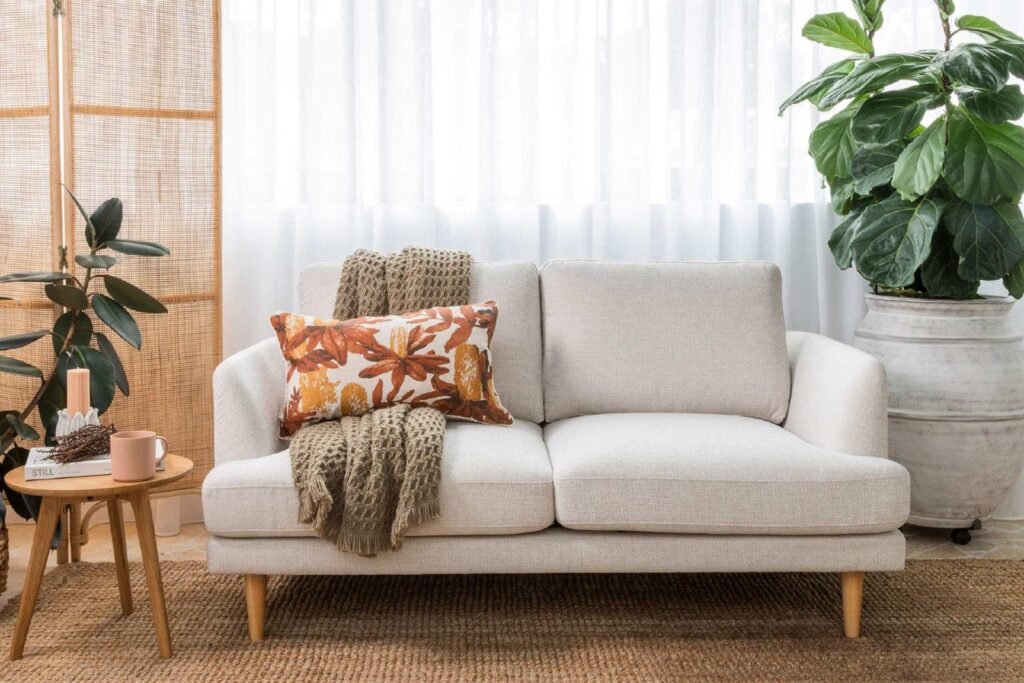Small space design psychology research indicates that perceived room size increases by 23% when furniture selection and placement adhere to established spatial optimization principles. Contemporary urban living has driven demand for sophisticated seating solutions that maximize both comfort and visual spaciousness within constrained floor areas. Interior designers specializing in compact living spaces increasingly recommend elegant 2-seater sofas as foundational pieces that provide necessary seating capacity without overwhelming limited square footage. Professional space planning methodologies have evolved to address the unique challenges of small room design while maintaining aesthetic sophistication and functional flexibility. Modern manufacturing techniques enable the production of compact seating that rivals full-size alternatives in both comfort and visual impact, achieved through careful attention to proportion, materials, and design details.
Proportional Relationships and Visual Balance Principles
Successful small room design requires a sophisticated understanding of proportional relationships between furniture pieces and architectural elements. Two-seater sofas must maintain proper scale relationships with ceiling heights, typically requiring back heights that measure 30-36 inches in standard 8-foot ceiling environments. Sofa length calculations should consider room width proportions, with optimal sizing representing 50-60% of available wall space to prevent overwhelming visual effects.
Visual weight distribution affects perceived room balance and spatial flow patterns. Light-colored upholstery reduces visual mass while dark colors create focal points that can either enhance or diminish spatial perception depending on placement and surrounding elements. Leg visibility contributes to airiness perception, with raised sofas creating visual floor space that enhances openness compared to skirted alternatives.
Sight line preservation enables visual flow throughout small spaces while preventing barriers that fragment already limited areas. Low-profile sofa backs maintain a visual connection between spaces while providing necessary seating support. Strategic placement away from primary traffic patterns prevents bottlenecks while maximizing usable floor area for circulation and additional activities.
Strategic Color Palette Development
Color psychology principles significantly influence spatial perception and emotional responses within small living environments. Monochromatic schemes utilizing varying shades of single colors create visual continuity that expands perceived boundaries while maintaining sophisticated aesthetic appeal. Neutral palettes provide versatile foundations that accommodate seasonal accent changes without requiring major furniture replacements.
Contrast management becomes critical in small spaces where high-contrast combinations can create visual fragmentation that reduces perceived size. Subtle tonal variations between sofa upholstery and wall colors maintain definition while promoting visual flow. Strategic accent placement through throw pillows, artwork, or accessories adds personality without overwhelming limited visual real estate.
Light reflection properties of different colors and finishes significantly impact ambient illumination levels within small rooms. Glossy finishes and metallic accents reflect available light sources while matte textures absorb illumination. Strategic integration of reflective elements enhances natural and artificial lighting effectiveness while creating brightness that visually expands spatial boundaries.
Multi-Functional Integration Strategies
Contemporary small space design emphasizes furniture pieces that serve multiple functions while maintaining aesthetic sophistication. Storage-integrated sofas provide concealed organization solutions for items that would otherwise require separate furniture pieces. Ottoman combinations offer additional seating capacity, coffee table functionality, and storage capabilities within compact footprints.
Modular seating systems enable configuration flexibility that adapts to changing needs and social situations. Sectional alternatives to traditional two-seaters can be separated into individual chairs for versatile arrangement options. Mobility features, including casters or lightweight construction, enable easy reconfiguration for different activities or entertaining requirements.
Technology integration considerations include power outlets for device charging, USB ports for convenience, and wire management systems that maintain a clean appearance. Smart home compatibility enables voice control and automated adjustments that enhance functionality without requiring additional control devices or remote storage.
Lighting Design and Ambiance Creation
Layered lighting strategies maximize both functional illumination and aesthetic appeal within small living spaces. Ambient lighting provides general illumination while task lighting supports specific activities like reading or conversation. Accent lighting highlights architectural features or decorative elements that enhance overall design sophistication.
Natural light optimization involves window treatment selection and furniture placement that maximizes daylight penetration while maintaining privacy requirements. Reflective surfaces strategically positioned opposite windows amplify available natural light throughout the day. Light-colored upholstery and finishes enhance brightness while darker elements create depth and visual interest.
Artificial lighting selection significantly impacts color rendering and spatial perception within small rooms. LED technology provides energy efficiency while offering color temperature control that adapts to different times of day and activities. Dimming capabilities enable ambiance adjustment that transforms spaces from functional daytime environments to intimate evening settings.
Accessory Selection and Styling Techniques
Accessory integration requires careful curation to prevent visual clutter while maintaining personality and warmth within small living spaces. Scale-appropriate decorative elements enhance rather than overwhelm compact seating arrangements. Professional styling techniques utilize odd-numbered groupings and varying heights to create visual interest without chaos.
Textile layering through throw pillows, blankets, and rugs adds comfort and visual warmth while providing opportunities for seasonal updates and personal expression. Texture combinations create depth and sophistication that prevent monotonous appearances. Natural materials, including wood, metal, and stone, provide organic contrast to upholstered seating.
Artwork and wall decor require strategic placement that complements rather than competes with seating arrangements. Properly scaled pieces positioned at appropriate heights create focal points that enhance overall design schemes. Gallery wall configurations can add personality and visual interest while maintaining proportional relationships with furniture pieces beneath them.

